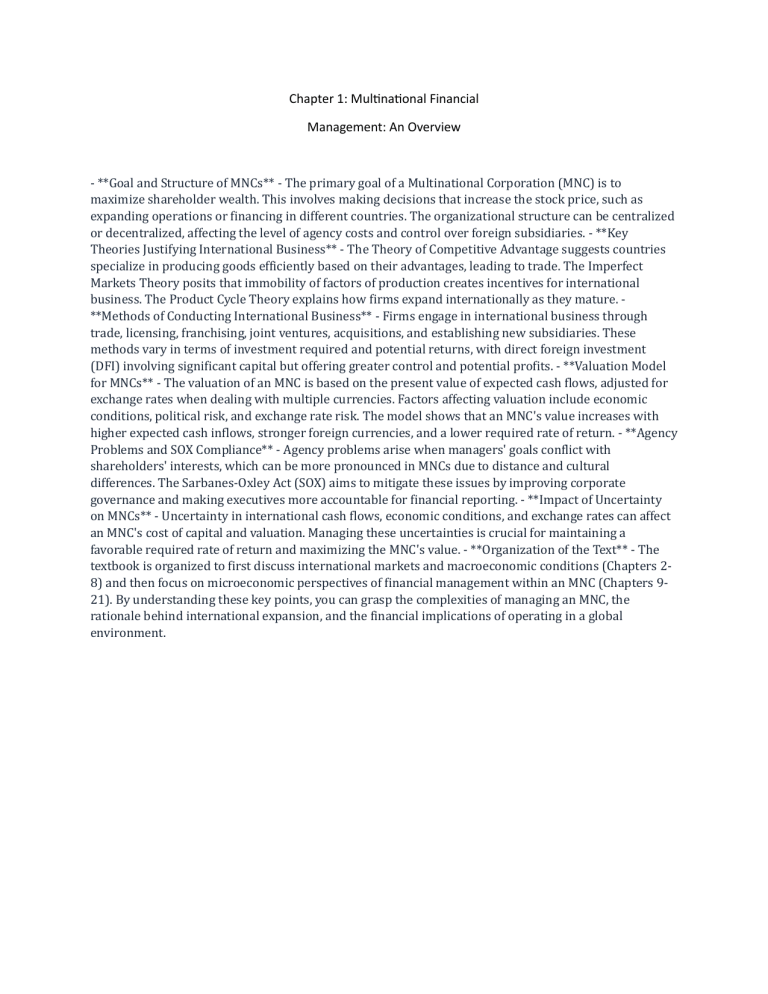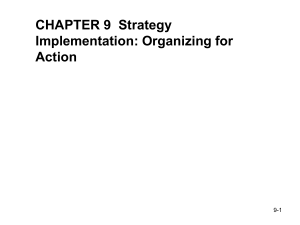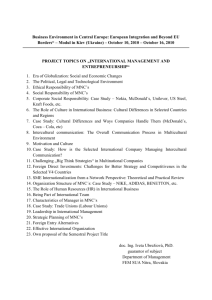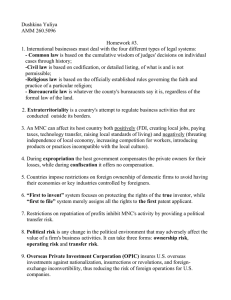
Chapter 1: Multinational Financial Management: An Overview - **Goal and Structure of MNCs** - The primary goal of a Multinational Corporation (MNC) is to maximize shareholder wealth. This involves making decisions that increase the stock price, such as expanding operations or financing in different countries. The organizational structure can be centralized or decentralized, affecting the level of agency costs and control over foreign subsidiaries. - **Key Theories Justifying International Business** - The Theory of Competitive Advantage suggests countries specialize in producing goods efficiently based on their advantages, leading to trade. The Imperfect Markets Theory posits that immobility of factors of production creates incentives for international business. The Product Cycle Theory explains how firms expand internationally as they mature. **Methods of Conducting International Business** - Firms engage in international business through trade, licensing, franchising, joint ventures, acquisitions, and establishing new subsidiaries. These methods vary in terms of investment required and potential returns, with direct foreign investment (DFI) involving significant capital but offering greater control and potential profits. - **Valuation Model for MNCs** - The valuation of an MNC is based on the present value of expected cash flows, adjusted for exchange rates when dealing with multiple currencies. Factors affecting valuation include economic conditions, political risk, and exchange rate risk. The model shows that an MNC's value increases with higher expected cash inflows, stronger foreign currencies, and a lower required rate of return. - **Agency Problems and SOX Compliance** - Agency problems arise when managers' goals conflict with shareholders' interests, which can be more pronounced in MNCs due to distance and cultural differences. The Sarbanes-Oxley Act (SOX) aims to mitigate these issues by improving corporate governance and making executives more accountable for financial reporting. - **Impact of Uncertainty on MNCs** - Uncertainty in international cash flows, economic conditions, and exchange rates can affect an MNC's cost of capital and valuation. Managing these uncertainties is crucial for maintaining a favorable required rate of return and maximizing the MNC's value. - **Organization of the Text** - The textbook is organized to first discuss international markets and macroeconomic conditions (Chapters 28) and then focus on microeconomic perspectives of financial management within an MNC (Chapters 921). By understanding these key points, you can grasp the complexities of managing an MNC, the rationale behind international expansion, and the financial implications of operating in a global environment.




